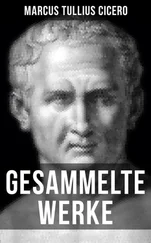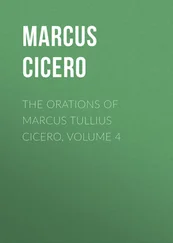Marcus Cicero - De Amicitia, Scipio's Dream
Здесь есть возможность читать онлайн «Marcus Cicero - De Amicitia, Scipio's Dream» — ознакомительный отрывок электронной книги совершенно бесплатно, а после прочтения отрывка купить полную версию. В некоторых случаях можно слушать аудио, скачать через торрент в формате fb2 и присутствует краткое содержание. Издательство: Иностранный паблик, Жанр: foreign_antique, Философия, foreign_edu, на английском языке. Описание произведения, (предисловие) а так же отзывы посетителей доступны на портале библиотеки ЛибКат.
- Название:De Amicitia, Scipio's Dream
- Автор:
- Издательство:Иностранный паблик
- Жанр:
- Год:неизвестен
- ISBN:нет данных
- Рейтинг книги:3 / 5. Голосов: 1
-
Избранное:Добавить в избранное
- Отзывы:
-
Ваша оценка:
- 60
- 1
- 2
- 3
- 4
- 5
De Amicitia, Scipio's Dream: краткое содержание, описание и аннотация
Предлагаем к чтению аннотацию, описание, краткое содержание или предисловие (зависит от того, что написал сам автор книги «De Amicitia, Scipio's Dream»). Если вы не нашли необходимую информацию о книге — напишите в комментариях, мы постараемся отыскать её.
De Amicitia, Scipio's Dream — читать онлайн ознакомительный отрывок
Ниже представлен текст книги, разбитый по страницам. Система сохранения места последней прочитанной страницы, позволяет с удобством читать онлайн бесплатно книгу «De Amicitia, Scipio's Dream», без необходимости каждый раз заново искать на чём Вы остановились. Поставьте закладку, и сможете в любой момент перейти на страницу, на которой закончили чтение.
Интервал:
Закладка:
Marcus Tullius Cicero
De Amicitia, Scipio's Dream
INTRODUCTION
The De Amicitia , inscribed, like the De Senectute , to Atticus, was probably written early in the year 44 B.C., during Cicero's retirement, after the death of Julius Caesar and before the conflict with Antony. The subject had been a favorite one with Greek philosophers, from whom Cicero always borrowed largely, or rather, whose materials he made fairly his own by the skill, richness, and beauty of his elaboration, Some passages of this treatise were evidently suggested by Plato; and Aulus Gellius says that Cicero made no little use of a now lost essay of Theophrastus on Friendship.
In this work I am especially impressed by Cicero's dramatic power. But for the mediocrity of his poetic genius, he might have won pre-eminent honor from the Muse of Tragedy. He here so thoroughly enters into the feelings of Laelius with reference to Scipio's death, that as we read we forget that it is not Laelius himself who is speaking. We find ourselves in close sympathy with him, as if he were telling us the story of his bereavement, giving utterance to his manly fortitude and resignation and portraying his friend's virtues from the unfading image phototyped on his own loving memory. In other matters too Cicero goes back to the time of Laelius and assumes his point of view assigning to him just the degree of foresight which he probably possessed and making not the slightest reference to the very different aspect in which he himself had learned to regard and was wont to represent the personages and events of that earlier period. Thus while Cicero traced the downfall of the republic to changes in the body politic that had taken place or were imminent and inevitable when Scipio died he makes Laelius perceive only a slight though threatening deflection from what had been in the earlier time [Footnote 1]. So too though Cicero was annoyed more than by almost any other characteristic of his age by the prevalence of the Epicurean philosophy and ascribed to it in a very large degree the demoralization of men in public life with Laelius the doctrines of this school are represented as they must have been in fact as new and unfamiliar. In time Laelius is here made to say not a word which he being the man that he was and at the date assumed for this dialogue might not have said himself; and it may be doubted whether a report of one of his actual conversations would have seemed more truly genuine.
This is a rare gift often sought indeed yet sought in vain not only by dramatists who have very [Footnote 1 Deflexit jam aliquantul im ] seldom attained it but by authors of a very great diversity of type and culture. One who undertakes to personate a character belonging to an age not his own hardly ever fails of manifest anachronisms. The author finds it utterly impossible to fit the antique mask so closely as not now and then to show through its chinks his own more modern features, while this form of internal evidence never fails to betray an intended forgery however skilfully wrought. On the other hand there is no surer proof of the genuineness of a work purporting to be of an earlier but alleged to be of a later origin than the absence of all tokens of a time subsequent to the earliest date claimed for it. [Footnote: Thus among the many proofs of the genuineness of our canonical Gospels perhaps none is more conclusive than the fact that though evidently written by unskilled men they contain not a trace or token of certain opinions known to have been rife even before the close of the first Christian century; while the (so called) apocryphal Gospels bear, throughout, such vestiges of their later origin as would neutralize the strongest testimony imaginable in behalf of their primitive antiquity.]
In connection with this work it should be borne in mind that the special duties of friendship constituted an essential department of ethics in the ancient world and that the relation of friend to friend was regarded as on the same plane with that of brother to brother. No treatise on morals would have been thought complete had this subject been omitted. Not a few modern writers have attempted the formal treatment of friendship but while the relation of kindred minds and souls has lost none of its sacredness and value, the establishment of a code of rules for it ignores on the one hand the spontaneity of this relation, and on the other hand, its entire amenableness to the laws and principles that should restrict and govern all human intercourse and conduct.
Shaftesbury, in his 'Characteristics,' in his exquisite vein of irony sneers at Christianity for taking no cognizance of friendship either in its precepts or in its promises. Jeremy Taylor, however, speaks of this feature of Christianity as among the manifest tokens of its divine origin, and Soame Jenyns takes the same ground in a treatise expressly designed to meet the objections and cavils of Shaftesbury and other deistical writers of his time. These authors are all in the right and all in the wrong, as to the matter of fact. There is no reason why Christianity should prescribe friendship which is a privilege, not a duty, or should essay to regulate it, for its only ethical rule of strict obligation is the negative rule which would lay out for it a track that shall never interfere with any positive duty selfward, manward or Godward. But in the life of the Founder of Christianity, who teaches, most of all, by example, friendship has its apogee,—its supreme pre-eminence and honor. He treats his apostles and speaks of and to them, not as mere disciples but as intimate and dearly beloved friends, among these there are three with whom he stands in peculiarly near relations, and one of the three was singled out by him in dying for the most sacred charge that he left on the earth, while at the same time that disciple shows in his Gospel that he had obtained an inside view so to speak, of his Master's spiritual life and of the profounder sense of his teachings which is distinguished by contrast rather than by comparison from the more superficial narratives of the other evangelists.
But Christianity has done even more than this for friendship. It has superseded its name by fulfilling its offices to a degree of perfectness which had never entered into the ante-Christian mind. Man shrinks from solitude. He feels inadequate to bear the burdens, meet the trials, and wage the conflicts of this mortal life, alone. Orestes always needed and craved a Pylades, but often failed to find one. This inevitable yearning, when it met no human response found still less to satisfy it in the objects of worship. Its gods, though in great part deified men, could not be relied on for sympathy, support or help. The stronger spirits did not believe in them, the feebler looked upon them only with awe and dread. But Christianity, in its anthropomorphism, which is its strongest hold on faith and trust, insures for the individual man in a Divine Humanity precisely what friends might essay to do yet could do but imperfectly for him. It proffers the tender sympathy and helpfulness of Him who bears the griefs and carries the sorrows of each and all; while the near view that it presents of the life beyond death inspires the sense of unbroken union with friends in heaven, and of the fellow-feeling of "a cloud of witnesses" beside. Thus while friendship in ordinary life is never to be spurned when it may be had without sacrifice of principle, it is less a necessity than when man's relations with the unseen world gave no promise of strength, aid, or comfort.
Experience has deepened my conviction that what is called a free translation is the only fit rendering of Latin into English; that is, the only way of giving to the English reader the actual sense of the Latin writer. This last has been my endeavor. The comparison is, indeed, exaggerated; but it often seems to me, in unrolling a compact Latin sentence, as if I were writing out in words the meaning of an algebraic formula. A single word often requires three or four as its English equivalent. Yet the language is not made obscure by compression. On the contrary, there is no other language in which it is so hard to bury thought or to conceal its absence by superfluous verbiage.
Читать дальшеИнтервал:
Закладка:
Похожие книги на «De Amicitia, Scipio's Dream»
Представляем Вашему вниманию похожие книги на «De Amicitia, Scipio's Dream» списком для выбора. Мы отобрали схожую по названию и смыслу литературу в надежде предоставить читателям больше вариантов отыскать новые, интересные, ещё непрочитанные произведения.
Обсуждение, отзывы о книге «De Amicitia, Scipio's Dream» и просто собственные мнения читателей. Оставьте ваши комментарии, напишите, что Вы думаете о произведении, его смысле или главных героях. Укажите что конкретно понравилось, а что нет, и почему Вы так считаете.












